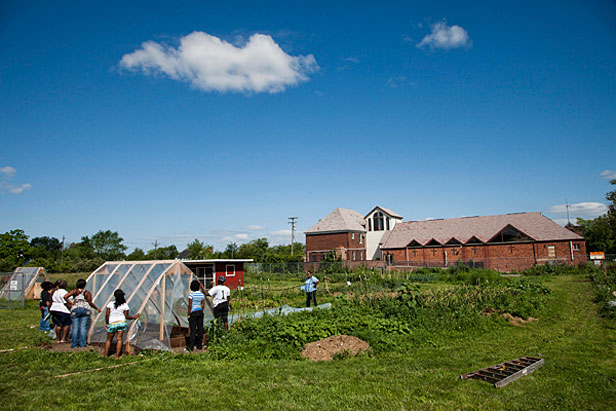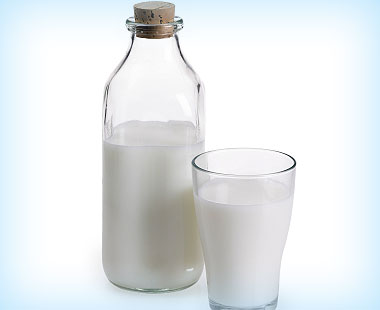 CNN is milking the raw dairy angle for all it’s worth. As someone who follows closely the relentless campaign by the nation’s medical and public health establishments against raw milk, I’ve been waiting for the other shoe to drop in the European food-borne illness disaster.
CNN is milking the raw dairy angle for all it’s worth. As someone who follows closely the relentless campaign by the nation’s medical and public health establishments against raw milk, I’ve been waiting for the other shoe to drop in the European food-borne illness disaster.
The “other shoe” is for some scientist or government public health official to seek to link the European tragedy to the battle here over raw milk.
Sound crazy? I’d say. Verge on the paranoid? Definitely. After all, among all the culprits publicly linked to the tragedy — cucumbers, tomatoes, and, most recently, sprouts — dairy products of any kind have been noticeably absent.
But sure enough, it finally happened, and from CNN no less. The major media outlet published an editorial that sought to elucidate lessons from the European outbreak, and the key lesson turns out to be that the U.S. should ban raw milk (and raw juices). “Though it (the European outbreak) is not a reason to panic, this incident should force us to rethink some important food safety issues,” the editorial began. “One good place to start would be to completely ban the sale of raw milk and juice.”
If you’re going to ban any food (and I have a difficult time imagining finding justification to do that), wouldn’t you think it would be sprouts, which has been most definitively linked to more than 2,000 European illnesses, and 36 deaths? But then, logic isn’t the strong suit of those obsessed with depriving 10 million Americans of the unpasteurized dairy products they enjoy. (More than 3 percent of the population regularly consumes raw dairy, according to federal data [PDF].)
Nor is reasonable statistical analysis part of the argument. The author, Alex Berezow, who is identified as “a Ph.D. in microbiology,” puts forward a bunch of half truths to make the CNN case.
“Unpasteurized milk has a greater chance of being contaminated with disease-causing bacteria than pasteurized milk,” writes Berezow.
But the reality is that dairy overall is one of the safest product categories around, according to the Center for Science in the Public Interest, with milk and milk products accounting for fewer than 1 percent of total outbreaks [PDF]. Yes, raw dairy is riskier than pasteurized dairy for carrying pathogens (and many of us who favor the availability of raw milk readily acknowledge this), but the reality is that neither food is especially dangerous. Raw dairy causes between 50 and 150 reported illnesses each year — this out of a total of between 20,000 and 25,000 illnesses reported by the U.S. Centers for Disease Control each year (there were 21,244 reported in 2007, the last year for which data is available). (And pasteurized milk does cause illnesses as well — as recently as 2007 it killed three people in Massachusetts.)
Then the editorial states that “raw milk could cause a massive E. coli outbreak within a single state.” We have had large-scale E. coli outbreaks in this country, involving ground beef and raw spinach, for example, but never involving raw milk. I suppose anything is possible, but to propose banning a food because of some far-fetched possibility? I don’t know how to characterize the idea, except as hysterical.
The Berezow/CNN editorial then seeks to suggest that people who consume raw milk and raw juices are delusional. “Proponents of raw food believe natural products are healthier. This is a myth.” It’s not at all clear what the editorial means by “natural products,” but I take it to mean food that hasn’t been processed or treated with chemicals, and there is all kinds of evidence to support the notion that natural products are healthier, or rather, that unnatural products are unhealthy. The latest example can be seen in the recent revelations about the presence of arsenic in much of the chicken produced in the U.S., apparently coming from a Pfizer drug that has for more than 60 years been fed to chickens to reduce parasites. The FDA recently announced that Pfizer had agreed to discontinue use of the drug. Consumer Reports had found that organic chickens didn’t have the arsenic. Since arsenic is a cancer-causing agent, I’d say the absence of arsenic made the “natural product” healthier.
There is a final irony associated with this editorial. Berezow in a previous CNN editorial bemoaning that we have become a nation of “germophobes” made reference to “a recent study that showed that children who grow up on farms, and are exposed to a greater diversity of infectious agents, are less likely to develop asthma.” He didn’t specify which study he was referring to, but I wonder if it’s the PARSIFAL study [PDF] done in Europe five years ago of nearly 15,000 children, comparing those who grew up on farms drinking raw milk and those in other places who didn’t. The study’s authors concluded that “the results of the present study indicate that consumption of farm milk is associated with a lower risk of childhood asthma and rhinoconjunctivitis.”
The reality is that both raw milk and raw juice are severely restricted in many places as it is. If anything, these nutrient-dense foods should be more widely available. To suggest banning them is a radical notion. If mainstream media are going to use supposedly credible scientists to make the argument, they should at least apply more than the fuzziest of logic.




